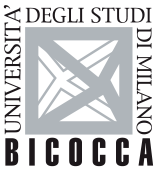(English)
The Doctorate in Sustainable Human Development is an international, intersectoral, interdisciplinary and intercultural Ph. D., which involves four Universities and several organizations and local governments from four different countries: Argentina, Cuba, Italy and Nicaragua, as well as other higher education institutions, local organizations and administrations.
The program promotes interdisciplinary training and research in sustainable human development with an integrated curriculum and through mobility paths PhD students in the partner institutions, refers to the objectives and working methods agreed in the UN platform for the worldwide development, currently synthesized in the 17 Agenda 2030.
The doctoral program rests on three definitions of international development cooperation and also on three key principles.
(English)
Key words
(English) Development
(English)is understood as the fundamental function of every human society to respond in the best possible way to the needs of survival, welfare and safety of all citizens in every social context.
(English) Human Development
(English) refers to social systems and the social aspects of complex technical systems that must continuously adapt to conditions becoming interaction between groups and individuals.(English) Sustainable Human Development
(English)refers to the recognition of the natural context, historical and cultural contexts in which adaptive systems are generated and the creation of a climate of respect for the diversity that nurtures and cultivates the development of different adaptive systems over time.
(English)
Key principles
(English) Culture
(English)People maintain identity and a sense of coordination and action in cultural groups, so the change takes place necessarily within a cultural context. Sustainable human development depends on an equitable way of change taking place in an atmosphere of respect for cultural diversity. Therefore, work for the development work requires a high level of intercultural sensitivity and intercultural communication competence.
